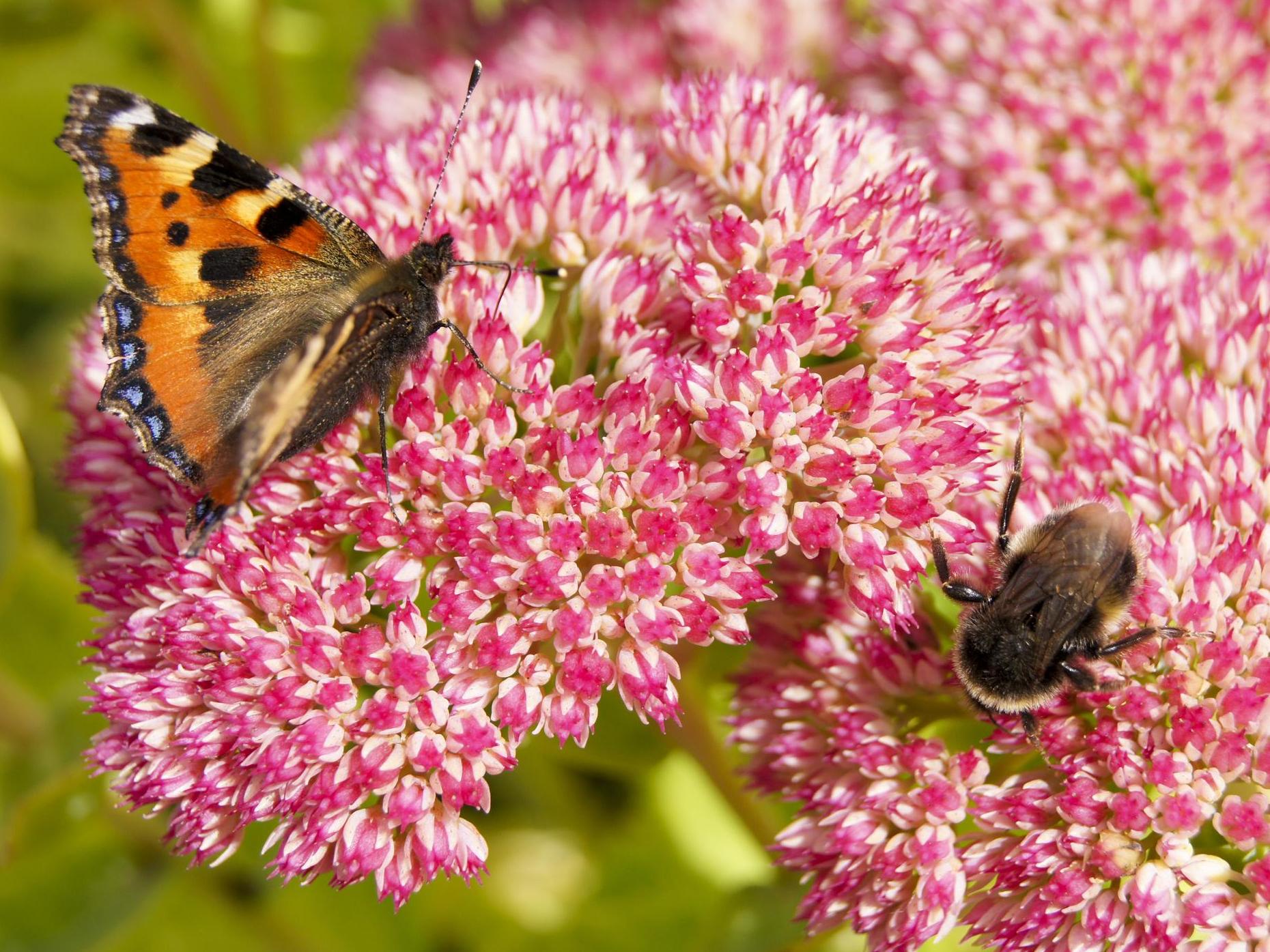Loss of pollinators shows Britain is not immune to ‘insect armageddon’
Analysis: With a report revealing declines in pollinators, we need to understand why preserving insect life in all its diversity is so important

A panda is worth a thousand wasps. Put a cute picture of one of those black-and-white bears on your front cover or advertising campaign, and watch the cash flow in. A swarm of flies is unlikely to produce the same effect.
Why is this? Presumably because by and large people don’t really care about bugs. The plight of the world’s whales and elephants has long been a cause celebre, while the insects at the heart of the planet’s ecosystems have been overlooked.
One exception is the bee, an insect that’s easy to love. They make our honey, and their pollination provides a £690m boost to our economy.
As a consequence, the cause of bee colony collapse has been taken up with gusto by campaigners and politicians in recent years, culminating in an EU-wide ban on harmful neonicotinoid pesticides.
However, a new report serves as a reminder that focusing on industrious honeybees alone is not enough.
There are at least 1,500 species of pollinating insects in the UK, including not one but 250 species of bee, as well as hoverflies, butterflies and moths. While often overlooked, these creatures are vulnerable to the same pressures threatening Britain’s hives: pesticides, disease and climate change.
Compiled by scientists at the Centre for Ecology and Hydrology, the latest study is based on decades of observations by amateur and professional naturalists from across the country. It focuses on a few hundred bee and hoverfly species, and while it cannot give any sense of the number of pollinators in any given region, it does provide a far blunter metric: are they there or not?
The sad conclusion is that in many cases they are not, with around a third of the species studied in decline. This suggests Britain is part of a global trend. Study after study is revealing a worrying downward spiral for the planet’s insect populations, a trend that has been described as “ecological Armageddon”.
However, as the scientists themselves emphasise, this report is not all doom and gloom, and certainly does not spell the end for British farmers. Around a tenth of the pollinators studied, including 22 species that carry out the bulk of pollination for food crops, actually increased their habitat size since the study began in 1980.
Given this, you might ask why this is such a bad news story. Who cares about the red-shanked carder bee, the smooth-gastered furrow bee or even the large shaggy bee? As long as plants are being pollinated, everything is presumably running smoothly enough.
But there is a danger in reducing these creatures to the economic sum of their parts. The £690m figure is neat and easy to quote in a government paper, but it disguises the true value that pollinators and other insects have. They are food for other animals, they clean up waste and keep pests in check. Their abundance and diversity is vital not only for ecosystem health, but for our health as well, and we need to try to preserve all of them.
The UK has been deemed one of the most nature-depleted countries in the world, and while it is the water voles and hares that will inevitably make the headlines, it is at the insect level that most of the losses are taking place.
People must find it in their hearts to care about all bees, whether honey or large shaggy, because in the words of Labour MP Alex Sobel at a recent debate: “Insects are on the frontline of the battlefield, and humans are just another species in the war.”
Join our commenting forum
Join thought-provoking conversations, follow other Independent readers and see their replies
Comments